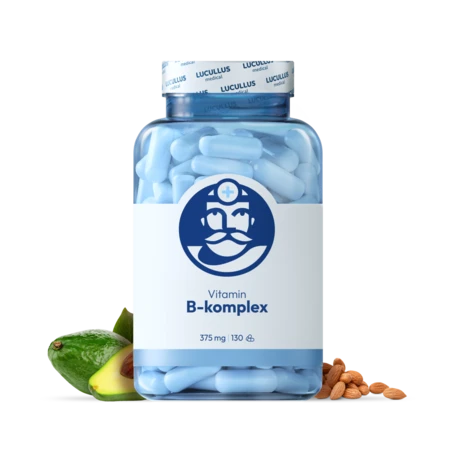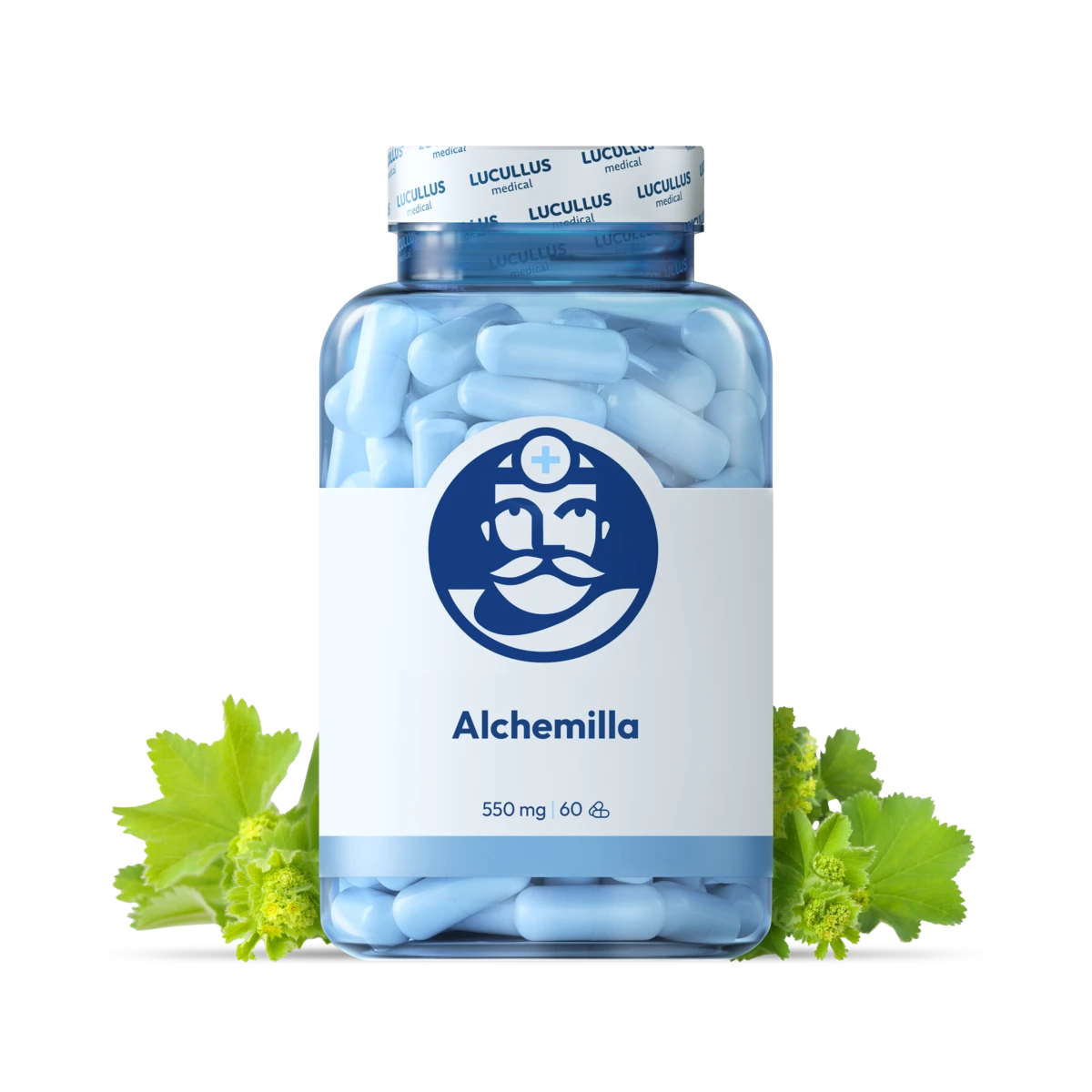
Common Lady's Mantle ... from the past to the present ...
originates from the Latin word " Alchemilla " related to alchemy. Alchemists believed in the miraculous power of water droplets on its leaves "heavenly water," (symbolized purity and nature's mystery), which were supposed to help them achieve eternal youth or transform a common metal into gold. They paid great attention to lady's mantle, which led not only to its naming but mainly to the discovery of its medicinal effects. The present relies on proven health benefits this medicinal plant offers.

Histamine Control
Histamine is often perceived negatively, especially for its role in allergic reactions and intolerance. As with many things in life, black-and-white thinking is not suitable for this biogenic amine. As a neurotransmitter, it participates in many critical processes. In defending the body, for example, it supports the enlargement of blood vessels, making it easier for immune cells to access the site of inflammation. At the same time, it stimulates the production of gastric juices (essential for food processing), regulates the sleep cycle, controls appetite, and plays a role in learning, memory, and emotions. Histamine naturally occurs in the human body, and its balance is crucial for health. In the digestive system, it's broken down by the enzyme diamine oxidase. However, if histamine intake is greater than the body can break down, histamine intolerance develops. This imbalance can be caused by stress, poor lifestyle, medicines, or other factors. Excess histamine can lead to unpleasant symptoms, often resembling food allergies or digestive issues. It's essential to understand histamine as an important helper in our body.

Mužská vitalita ... aby všetko fungovalo tak, ako má!
V dnešnej dobe podliehajúcej každodennému stresu je čoraz dôležitejšie dodávať telu silu prírody. Mužská vitalita je doplnkom z najefektívnejších rastlín. Unikátny vytvorený vzorec ušita na mieru pre potreby moderného človeka a jeho aktívny spôsob života. Pre viac energie a zvýšenie výkonu v práci aj nie, aby ste mohli naplno prežívať všetky dobrodružstvá, ktoré Vás čakajú.

Do we need the 'sunshine' vitamin D3 only in winter?
When you feel the sun's rays on your skin, know that your body is creating one of the most important vitamins - D3, which was discovered thanks to centuries of research. The discovery of vitamin D3 became one of the most significant medical achievements of the 20th century, saving millions of lives: It was the year 1650 and in the streets of London, doctors noticed that more and more children were suffering from a strange disease called rickets (their bones were weak and brittle, legs deformed, growth slowed). It wasn't until 1919 that Dr. Huldschinsky exposed children with rickets to ultraviolet light and their bones began to heal! Three years later, biochemist McCollum discovered a substance that prevented rickets and called it vitamin D. Gradually, the existence of the most important form of vitamin D3 (cholecalciferol) was discovered.

Zinok - zabiják únavy
Okrem doplnkov, fungovaniu a rôznych suplementov, potrebuje naše telo ku 100% aj tzv. stopové látky. Označenie "stopové" znamená, že ho naše telo potrebuje iba v malom objeme. Zinku potrebujeme 10mg denne, čo je oproti horčíku (375mg) 37x menšie množstvo. Zdalo by sa, že sa bavíme o úplnej zbytočnosti. Opak je však pravdou. Zinok ovplyvňuje viac ako 200 biochemických reakcií v našom tele!

Multitalent Multivitamín
Je potrebné mať multivitamínov iba spôsob ako drahú moč? Inými slovami: ak namiesto jednotlivých suplementov a zodpovedného dávkovania dáme všetko do jednej krabičky - bude to mať zmysel? Áno aj nie - pozrime sa na to.































